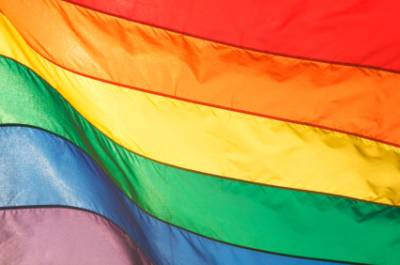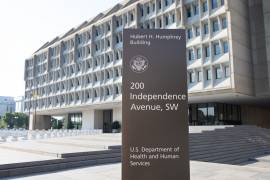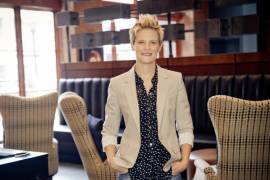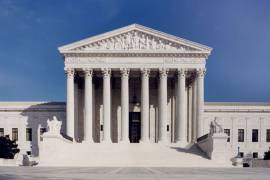
Lambda Legal Urges Supreme Court to Affirm Definitively that Religion Does Not Grant Businesses a License to Discriminate
Blog Search
The U.S. Supreme Court today decided to hear the appeal by a Denver-based marketing and design firm of a U.S. District Court ruling that denied the firm’s request for a special exemption from the Colorado Anti-Discrimination Act (CADA) and instead be allowed to refuse its commercial website design services to same-sex couples because the owner claims it violates her religion to treat same- and different-sex couples equally when conducting her business.
The U.S. Court of Appeals for the Tenth Circuit had affirmed the lower court ruling in July 2021. The design firm’s lawyers with anti-LGBTQ organization Alliance Defending Freedom (ADF) then asked the Supreme Court for review. ADF has been designated a hate group by the Southern Poverty Law Center.
Lambda Legal Senior Counsel Jennifer C. Pizer issued the following statement:
“The Supreme Court here has the opportunity to do what the justices should have done three-and-a-half years ago in Masterpiece Cakeshop v. Colorado Civil Rights Commission: Reaffirm and apply longstanding constitutional precedent that our freedoms of religion and speech are not a license to discriminate when operating a business. It is time once and for all to put to rest these businesses’ attempts to undermine the civil rights of LGBTQ people in the name of religion.
“In the case at issue in today’s action – 303 Creative LLC v. Elenis – we are witness yet again to the unrelenting anti-LGBTQ crusade being waged by self-described Christian fundamentalist legal groups aiming to chip away at the hard-won gains of LGBTQ people by carving out swaths of territory where discrimination can flourish. The constitutional protections for religious freedom and free speech were never intended as weapons of discrimination for those doing business with the general public. More than fifty years ago, the U.S. Supreme Court firmly condemned use of personal freedoms to excuse businesses’ discrimination. But the justices’ decision in Masterpiece Cakeshop lacked that clarity and invited discrimination. The Court can and should clear up that confusion by upholding the well-reasoned decision of the Tenth Circuit.”
Colorado expanded CADA’s protections in 2008 to include sexual orientation and gender identity. In September 2016, 303 Creative, represented by ADF, filed suit in the U.S. District Court for Colorado seeking an exemption from the public accommodation provisions of CADA, even though no same-sex couple had ever sought its services. The company’s website includes a reference to Lorie Smith operating her business in accordance with her personal religious beliefs, although it does not mention refusing services for same-sex couples.
In September 2017 the District Court ruled against 303 Creative, and reaffirmed that ruling in September 2019, after ADF’s initial appeal to the Tenth Circuit was denied and the case was sent back to the District Court. ADF then appealed to the Tenth Circuit again.
Lambda Legal’s Pizer added, “Make no mistake, this is another attempt by ADF to chip away at hard-won civil rights secured for LGBT people and their families. The appellate court saw through ADF’s transparent and continuing effort to secure a ‘free to discriminate’ card to exempt 303 Creative from the laws all other Colorado businesses are expected to follow. The Supreme Court should do likewise.”
303 Creative is one of numerous cases in state and federal courts in which businesses have claimed a religious and free speech license to discriminate and in which Lambda Legal participates either through direct representation, or as a friend-of-the-court. These include: Klein (dba Sweetcakes by Melissa) v. Oregon Bureau of Labor and Industries, in which Lambda Legal represents the lesbian couple denied service by a baker and her husband, in which the Oregon Court of Appeals ruled last month that religious objections do not excuse refusing equal services to same-sex couples, following the U.S. Supreme Court’s remand for further consideration. They also include Ingersoll and Freed v. Arlene’s Flowers, in which the Supreme Court of Washington affirmed its earlier ruling enforcing the law in favor of a gay couple denied service by a florist. The Supreme Court last term rejected the florist’s second attempt to secure a different result in the High Court. Lambda Legal supported the gay couple as a friend of the court.
The case is 303 Creative v. Elenis. Read the Tenth Circuit’s ruling here: https://www.lambdalegal.org/in-court/legal-docs/us_20210726_303-creative-v-elenis-opinion
Read our amicus brief here: https://www.lambdalegal.org/in-court/legal-docs/303_co_20200429_brief-for-amici-curiae
Read about Lambda Legal’s work fighting religious exemptions here: https://www.lambdalegal.org/blog/topic/ religious-exemptions.
Read our brief in Masterpiece Cakeshop here: https://www.lambdalegal.org/in-court/cases/masterpiece-cakes-v-co-civil-rights-commission.
The authors of Lambda Legal’s amicus brief are Jennifer C. Pizer and Deputy Legal Director for Litigation Camilla Taylor, with Jamie Gliksberg of Croke Fairchild Morgan & Beres.




